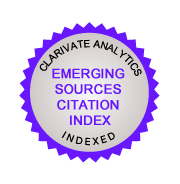Lípová 15, 120 44 Praha 2 | Email: kvas@beerresearch.cz | Tel.: +420 224 900 129 | Fax: +420 224 290 618
Kvasny Prum. 1998; 44(6): 168-171 | DOI: 10.18832/kp1998011
Stanovení halogenoctových kyselin v pivě pomocí kapilární plynové chromatografie.Recenzovaný článek
Chloroctová, bromoctová a jodoctová kyselina jsou toxické látky, vyznačující se antimikrobiální aktivitou. Často jsou používány v pivovarských a vinařských provozech ve formě vodného roztoku při sanitaci technologického zařízení. Přítomnost residuí halogenoctových kyselin v nápojích může být způsobena nedostatečným proplachem technologického zařízení po provedené sanitaci. V publikaci je detailně popsán postup extrakce residuí halogenoctových kyselin z piva, spočívající v kombinaci extrakce na pevné fázi a klasické extrakční metody. V prvém kroku byly na kolonce naplněné modifikovaným sorbentem C18 odstraněny z analyzované matrice některé interferující nízkopolární složky, v následujícím kroku byly z předčištěného eluátu halogenoctové kyseliny vyextrahovány do octanu ethylnatého. Po zahuštění extraktu následovala derivatizace (methylace) analytu a stanovení methylderivátů pomocí detektoru ECD. Detailně je popsán výběr vhodného typu kapilární kolony pro dokonalé dělení vzniklých methylderivátů halogenoctových kyselin. Derivatizace pomocí BF3/CH3OH a analytická koncovka využívající 60 m kapilární kolonu DB-5 s vyšší tloušťkou filmu a detektor ECD poskytuje chromatogramy, u nichž jsou píky stanovených látek prosty případných interferencí. Výše uvedenou metodu lze proto doporučit pro rutinní kontrolu v rámci pivovarského průmyslu.
Klíčová slova: halogenoctové kyseliny, plynová chromatografie, pivo
Zveřejněno: 1. červen 1998






